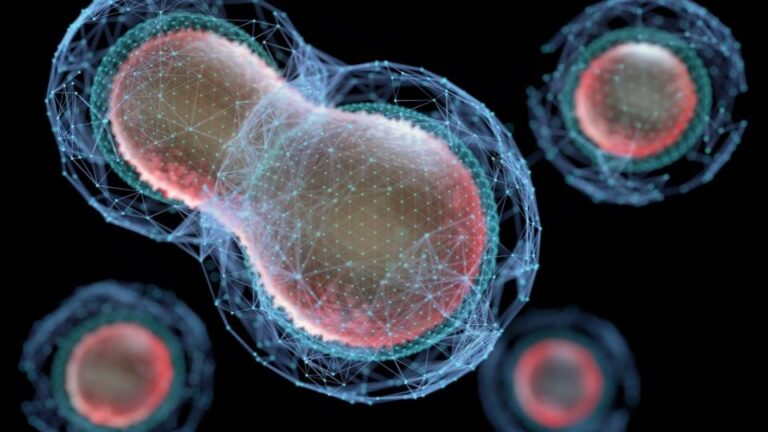In the business of biology, data is king. And in this information age, biologists are becoming their own data analysts. Working with huge datasets requires computer science and computational thinking skills, which is why bioinformatics careers have grown so much in demand over the last decade.
If you’re interested in a career in bioinformatics or are pursuing further education by earning your PhD in bioinformatics, this blog post will introduce you to the field of study and common career paths as a bioinformaticist. Read on to learn more about the secrets to building a career as a bioinformaticist—regardless of whether that’s your final academic destination.
What is Bioinformatics?
Bioinformatics is the application of computer science and computational biology to analyze biological data. In other words, it’s about making sense of the data generated from biological experiments and functional genomics studies. Biologists use bioinformatics to search for patterns in their data. This can include identifying genes or proteins that could be related to specific diseases or medical conditions, or finding the best drug candidates for treatment.
Bioinformatics can also help biologists to manage and organize large datasets, or conduct data mining and statistical analyses. Bioinformaticians may work directly with biologists in the lab and during experiments, or they may work behind the scenes in the bioinformatics department. They use computer systems to store, organize, and analyze data, and create visualizations to help understand the data and make discoveries.

Education Requirements to be a Bioinformatician
There are many paths to becoming a bioinformatician, but earning a PhD in bioinformatics is one of the most common. This is because big data and data analysis are at the core of the field and require a high level of technical skills. Bioinformatics covers a wide range of topics and disciplines, including computer science, statistics, data visualisation, artificial intelligence, and genomics.
This requires a PhD to ensure you are trained in all of these fields. One thing to remember is that a PhD does not always result in a career in academia. Many PhD graduates in bioinformatics go on to pursue careers as data scientists or data analysts in industry.
Career Paths in Bioinformatics
There are many different career paths that a bioinformatician can pursue. Three of the most common are listed below.
Data Scientist: Working with large datasets and applying statistical analysis to generate meaningful results is the core function of a data scientist. Data scientists work with a wide range of data types, including biological data, and are in high demand.
Data Analyst: As the name suggests, a data analyst uses data to inform decisions and drive insights. Data analysts often work closely with business owners and marketing teams to identify trends and make recommendations based on data.
Software Developer: Software developers build computer and web applications. Many bioinformatics software tools are open source, meaning that you can contribute to the development of these tools as a bioinformaticist.

Job roles for PhDs in Bioinformatics
Many PhD graduates in bioinformatics go on to pursue careers as data scientists in industry. This job role is a great option for PhDs who enjoy working with data and want to use their technical skills and knowledge. As a data scientist, you would be responsible for taking raw data, applying algorithms and other data analyses, and producing actionable insights. You might work in a team of data scientists, and often collaborate with other business teams to help them understand their data and make decisions based on this.
Bioinformatician: Bioinformaticians are specialists who manage and manipulate large quantities of data. They are trained in computer programming, statistics, and genomics—three fields essential for working with biological data.
Research Scientist: A research scientist uses their research skills to conduct experiments to generate biological data or to search for patterns in existing data. They use statistical analyses and biological knowledge to draw conclusions.
Scientist: A scientist uses their knowledge of biology and scientific methods to conduct experiments in the lab, generate biological data, and design studies.

looking for a Bioinformatics Career ?
Join free-ist which is an exclusive network of the world’s top Academia and Corporate Researchers in Science and Technology. We provide access to companies that match you in quality with your skills, as well as compensate more for them.


